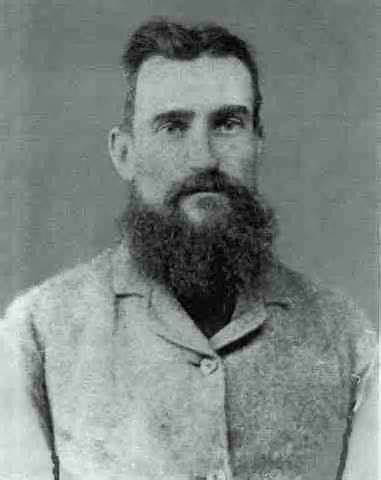
WHEN we think of the often romanticised buccaneer of the bush Down Under, odds-on Ned Kelly and Ben Hall are front of mind.
However, the man who rivalled them both, upon whom the press of the day bestowed the dubious distinction of the “Father of Bushranging” on these fair shores, was even more enigmatic – and a local, to boot.
He was born in Scotland in 1830. Or perhaps in Australia, just outside Queanbeyan, four years later.
His name was Francis Christie. Or maybe Clark. Or then again, Gardiner.
He died a pauper in a gunfight in 1882; although according to the “Sydney Morning Herald”, it could have been a bout of pneumonia in 1904 after having married into money.
And on June 15, 1862, he committed one of the highest-yielding crimes in our history when he robbed a gold escort near a hamlet called Eugowra in Central West NSW, netting a whopping 14,000 pounds worth of loot at a time most men were earning a pound a week. Much of this was eventually recovered by the authorities.
Or not.
The life – and death – of the outlaw who would eventually earn infamy as Frank Gardiner is one that over more than a century and a half has continued to be shrouded in mystery and conjecture. Whether or not he was Australian by birth, most of the earliest accounts agree that young Francis grew up in these parts: the family initially settled at Boro, only a few kilometres beyond Bungendore.
It was also known he had kin living in Queanbeyan; yet another intriguing but also unsubstantiated story, that he holed up with his sister and niece in the town while on the run.
Horse and cattle stealing had earned him early sentences, but Frank was also something of an escape artist and following the Eugowra job, he fled to Queensland where he was eventually tracked down in 1864.
After a sensational trial and an even more controversial release only 10 years into a 32-year sentence, the “handsome and athletic” Mr Gardiner disappeared to the US where reports variously detailed his alleged exploits, including his death on no less than three occasions.
Then, in 1910 (or ’32 depending on the source), two American “geologists” visited Forbes with rumours quickly circulating they were Gardiner’s sons looking for his unclaimed gold.
Whether they were and whether they did, are more unanswered questions in this tantalising tale, but the area continues to attract treasure hunters, though to date, all have left as empty-handed as the police who initially sought out the loot.
And while Gardiner may have been the big daddy of them all – he also set Ben Hall on the path to notoriety – he wasn’t this region’s only highwayman.

WILLIAM Westwood, aka Jackey Jackey or the “Gentleman Bushranger”, staged his first hold-up here near Carwoola in 1840.
An Englishman, Westwood too, proved a Houdini in regularly escaping the clutches of the law. Most infamously, he tried to swim to freedom from Port Arthur, at which time some of his fellow escapees were said to have been eaten by sharks. Captured again, he was finally sent down to Norfolk Island and, on involvement in an uprising, was hanged in 1846. He was 26.
THE earliest to roam this area remains a part of local folklore due to the outcrop allegedly named after him – despite the curiosity that it’s apparently misspelled.
Of Irish descent, John Tennant (with an “a”) took to a life of crime in the late 1820s, amongst other derring-do, robbing Lt JJ Moore’s holding Canberry. Various stories arose that he was either sent to Norfolk, dying a year after his release seven years later, or that he, too, met his end on the gallows.
His apparent legacy though is said to have come about because while in the “bush under arms”, Tennant hid out at what is now Mount Tennent (with an “e”), behind Tharwa – and also buried his still undiscovered ill-gotten gains there.
And the reason for the different spelling? Well, your guess is as good as mine, but what’s a bushranging legend without a legend?
Nichole Overall is a Queanbeyan-based historian, author and journalist.
Who can be trusted?
In a world of spin and confusion, there’s never been a more important time to support independent journalism in Canberra.
If you trust our work online and want to enforce the power of independent voices, I invite you to make a small contribution.
Every dollar of support is invested back into our journalism to help keep citynews.com.au strong and free.
Thank you,
Ian Meikle, editor




Leave a Reply